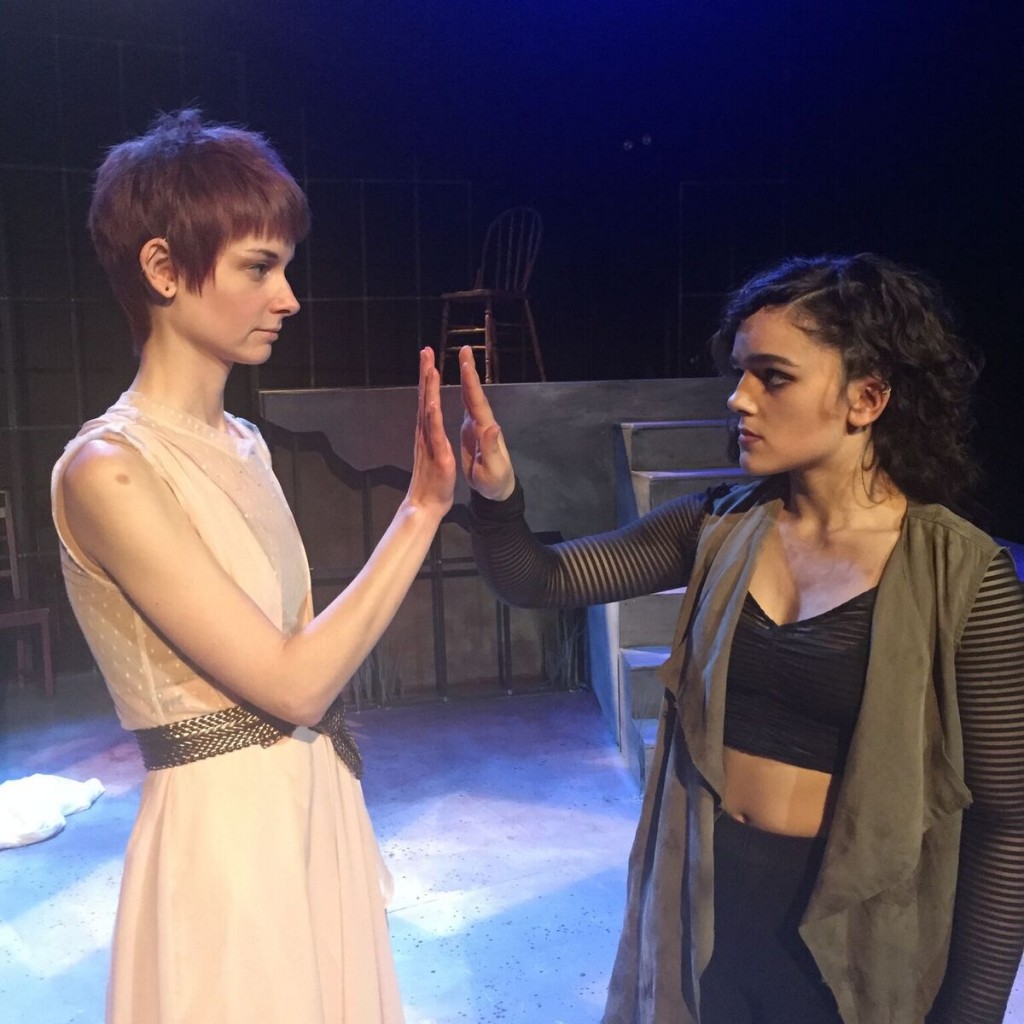
‘Antigone’ play review
By Caroline Ho, Arts Editor
A civil war with deep-seated scars, two irreconcilable frameworks of rightfulness, and a family mired in inescapable tragedy are laid out in Douglas College’s latest theatre production Antigone, which opened on March 9.
Originally written by Ancient Greek playwright Sophocles and adapted by Kathleen Weiss, Antigone is a timeless debate between the rule of law and justice according to morality. The city of Thebes has just emerged from a brutal civil war that has left two princes, Eteocles and Polyneices. dead and their uncle Creon as king. Creon declares Eteocles a hero for defending Thebes, but decrees Polyneices, who led the army against the city, a traitor whose corpse is to be left unburied. Antigone, sister of the late princes, is determined to defy Creon and lay Polyneices’s body to rest—even though the punishment for breaking the king’s edict is death.
The Theatre Department’s production is directed by Thrasso Petras and stars just six actors: Dayna Hoffman as Antigone; Nelson Ellis as Creon; Emily Thorne as Eurydice, Creon’s wife; Kobe Doi as Haemon, their son and Antigone’s betrothed; Amy Collisson as Ismene, sister to Antigone, Eteocles, and Polyneices; and Sara Dunn as the Chorus. These characters convey an intense and nuanced range of sentiments and sympathies. Antigone is willful and guided by her faith in what she considers rightful, regardless of the consequences, while Creon resolutely binds himself to laws and political stability, believing strict order to be necessary for peace and security. The other characters struggle to reason with one or the other while balancing their own notions of justice, self-preservation, and familial duty.
The play’s story is straightforward enough, with a short run time of a little over an hour uninterrupted. Plot and length are more than enough for Antigone to reflect deeper, systemic questions about the basis of governance and punishment, questions that resonate throughout the grief-stricken family, the war-torn city of Thebes, and many parallel debates throughout history and society.
Every character is brought to life full of emotion and motivation, with the unyielding convictions of Antigone and Creon, and the passion of Haemon who tries to persuade his father to be merciful to Antigone, standing out especially. Compellingly, the characters and the political extremes they embody are not merely blindly set in their own worldviews—they’re also hauntingly familiar and empathetic, as the actors persuasively articulate how core beliefs can drive people to such fundamentalist positions.
Dunn’s portrayal of the Chorus is also very powerful. Greek tragedies in their original forms typically had choruses of over a dozen members, and the chorus served as both narrator and character, commenting on and challenging other characters’ actions. In this adaptation, Dunn as the one-person Chorus performs both of these functions and more: She is a journalist interrogating Creon on his edicts, providing a tempered mix of third-person journalistic impartiality and a news-hungry public fascination with political and intrafamily drama.
Antigone is running in the small venue of the Studio Theatre, allowing the show to encompass the whole space on all sides and top to bottom. The set, which includes one sloped surface and one set of stairs leading to a platform, allows for some dynamic expressions of authority by utilizing physical displays of elevation.
The play’s production team augments the show to its fullest. Shifts in colour and intensity, along with costumes that mix classicism with a contemporary flair, accentuate the stark contrasts around which this play revolves—life and death, the rule of law and a higher moral authority, as well as internal and external war.
For all its power in calling into question ideological foundations, however, one of the most haunting aspects of the play is the foreboding suggestion that, for some, there is no simple easing of tension—all paths lead to tragedy.
Antigone runs until March 16. Tickets are still available at antigone2018.brownpapertickets.com/.



